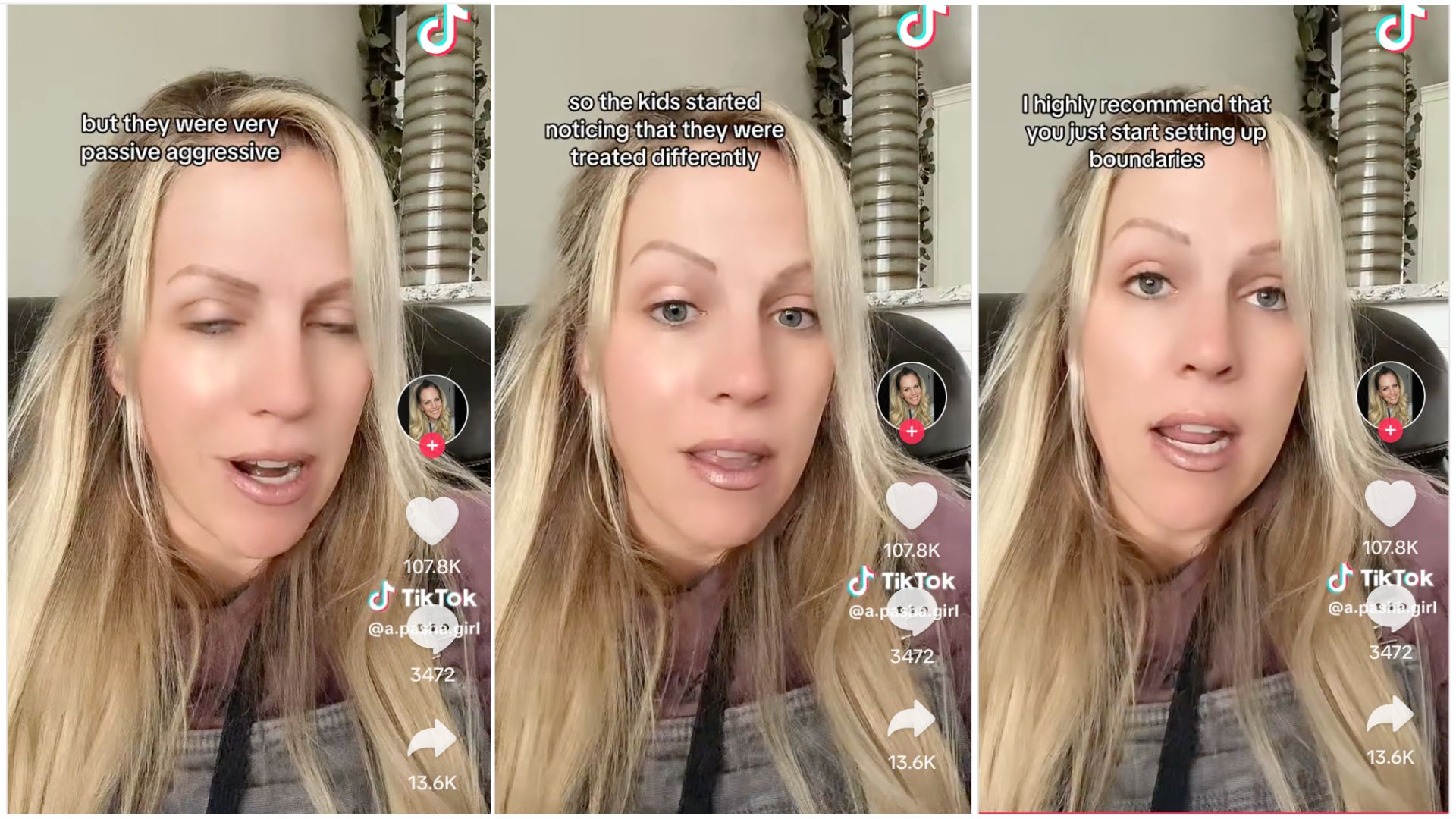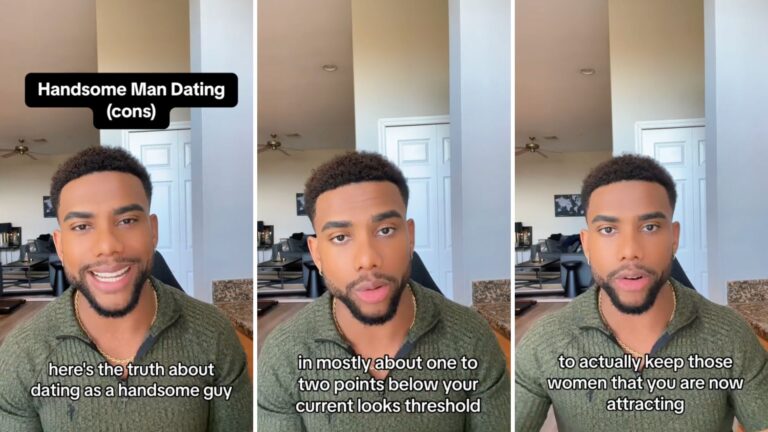Una mujer embarazada prohíbe a los familiares que no la quieren tener contacto con sus hijos
Un día me enfadé bastante porque Escuché unos comentarios horribles que mi suegra había hecho sobre mí.... She was speaking to her friend on the phone and didn’t realize I had entered the room and was standing behind her the whole time.
No tenía ni idea de que me despreciara tanto y me sorprendió descubrirlo. Entonces me sentí confusa porque decía que quería mucho a sus nietos y al mismo tiempo odiaba a la mujer que los había parido. ¡¿Cómo?!
Poco después me encontré con un Correo electrónico: en TikTok sobre este tipo de temas. Una joven futura mamá, llamada Tyler, compartió sus pensamientos y emociones sobre temas específicos de las relaciones.
“You openly despise me!”
Tyler empezó a hablar en un tono bastante iracundo, con una enérgica gesticulación. La barriga de tercer semestre también era bastante visible en el encuadre. Continuó dando perspectivas en profundidad de relaciones imaginarias con familiares, amigos o cualquier persona, básicamente:
“You call me names and you put me down. You don’t support me. You want nothing to do with me… You just don’t like me, and you let me know you don’t like me.”
The body language made it obvious Tyler was hurt but she didn’t want to point her finger to anyone specific. She underlines her words (sadly!) can be applied to anyone: be it a stranger on the street or a close family member. Then she continues why their standpoint has absolutely no sense!
“You let other people know. And at the end of the day, you still feel as though, regardless of how you treat me… regardless of the relationship, or no relationship, that we have, you still think you should go around that nasty relationship you’ve developed with me, and still be able to have access to my children.”
“And you want to be close to my kids? No way!”
The way moms react to disrespectful behavior has changed, and it doesn’t matter where or from whom the behavior comes.
“Regardless of your relationship with somebody — regardless if you are a grandma, a grandpa, a great grandma, a great grandpa, an aunt, uncle, brother or sister — you have no entitlement in life, and I’m sorry if that’s how you old school people grew up, but that is not how we roll now.”
Ofreciendo un escenario imaginario en el que ella y su amiga Savannah tenían algunos desacuerdos y se insultaban mutuamente, puso las cosas en perspectiva y pude véase el punto:
“she said something nasty about me, or I didn’t like something she did, but I still expect to be able to see her child, hang out with her child, have access to her child, be alone with her child.”
Her reasoning behind the fact she’d set boundaries for family members who openly disliked her was something I could strongly identify with:
“You do not have any entitlement over my children. I don’t care what your relationship is, what you think it is, to my child. If you disrespect me and you don’t appreciate me, and you don’t want to work on a relationship with me, you’re not gonna go around me as the mother and have access to my children.”
“Regardless of the disrespect my husband’s family was giving me, I allowed access to my children and this is what happened.”
Otro mujer, A Pasha Girl, responded with her story. She explained that her husband’s family didn’t like her from the beginning.
En kids wouldn’t notice it at first, but at the ages of 4 or 5, it became apparent. They would notice they don’t get the same treatment as other cousins whose moms were liked and accepted.
“If you think that someone doesn’t like you, that they’re going to treat your children the same as somebody they do like, you couldn’t be farther from the truth.”
She further explained they all tried counseling, the kids, the parents, and the husband’s family. As there was no había manera de arreglar las cosas, lo único que quedaba por hacer era establecer límites. También optaron por no asistir a las reuniones familiares, pero la familia no estaba contenta con ello.
“Now that people who don’t like us are mad at us for setting up those boundaries and it’s not because they wanna hang out with us, they don’t invite us to their houses for dinner, they’re not engaging with us, but it doesn’t look good.”
Pasha girl explained why it’s so important to stop getting involved and step back:
“We stopped playing the game and we just quit going. And I will say that the best thing we ever did for our family was to stop, to put up those boundaries, and just stop. If you don’t want us, you don’t like us, it is so much better to just stop.”
En un momento dado fui incapaz de entender si eso era realmente necesario, pero cuando describió el impacto que las relaciones tóxicas pueden tener en los niñosMe sentí tan triste y enojada al mismo tiempo. Entendí por qué tuvo que levantar un muro entre ellos.
“So your kids are so involved in this game but they don’t have the emotional or intellectual capacity or development to understand the game that these adults are playing, and so what do kids do? What kids do best: everything’s their fault. They can’t figure out why they’re not good enough, what they’re doing wrong, why these people don’t like them, why are they not good enough, why are they being treated different than their cousins, what is going on…”
If you’re wondering if you should try giving them a chance to be close to your kids, even when it’s so apparent they don’t like you, hear what A Pasha Girl has to say about it:
“It’s a lot easier to never open that door than to try fix and repair broken, damaged children.”
The final thought is such an eye-opener. I couldn’t agree more!







